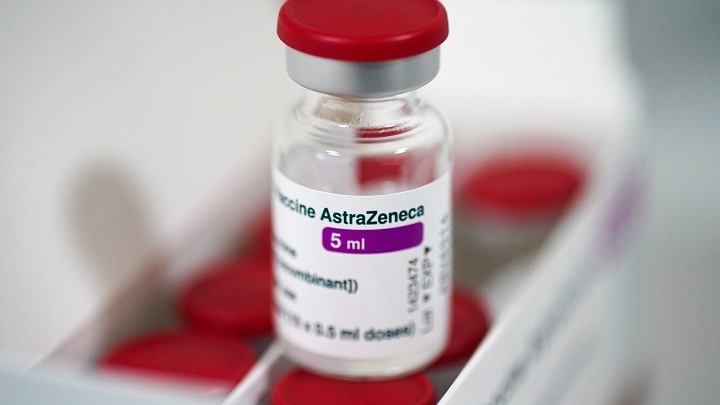Denmark today became the first country to completely stop using the AstraZeneca vaccine against COVID-19, due to a possible association with rare but severe cases of thromboembolism.
The decision will delay the completion of Denmark's vaccination program scheduled for July 25 by early August, health officials said.
The results of research on AstraZeneca-related thromboembolism "showed real and serious side effects," said the head of the Danish health service Soren Brostrum in a press conference.
"We have therefore chosen to continue the vaccination program for all groups without this vaccine."
The European Union's drug regulator announced last week that it had found a possible link between the AstraZeneca vaccine and cases of cerebral venous thrombosis (CVST), or cerebral thrombosis, but estimated the risk of death from COVID-19 is "much higher" than the risk of death due to some rare side effects.
As of April 4, the European Medicines Agency (EMA) had received reports of 169 cases of CVST after 34 million doses of the AstraZeneca vaccine had been administered to the European Economic Area.
The EU regulator, however, had left each country individually conducting its own risk assessment and deciding how to administer the vaccine.
Many countries in Europe and elsewhere have repeated the vaccine, with some restrictions on its use in certain age groups, especially those over 50 or over 60 years of age.
Brostrum said research based jointly on health data from Denmark and Norway estimated that one in 40.000 people vaccinated with AstraZeneca could have this serious complication without definitive age or sex. .
He said Denmark has come a long way in immunizing older people who are most at risk of catching a serious form of the virus.
The groups that will be vaccinated from now on are at less risk than this. "It must be weighed against the fact that we now have a known risk of serious adverse effects… with the vaccine against COVID-19 from AstraZeneca, although the risk in absolute numbers is small ”.
Therefore, the Danish decision should be seen only in a local context and "I understand very well why other countries will use it," he said.
Denmark was the first country to initially suspend the vaccine in March due to safety concerns and has also suspended the Johnson & Johnson vaccine pending further investigation into the possibility of it being associated with rare cases of thromboembolism.
Nearly one million of the country's 5,8 million people have received a first dose of the vaccine. 77% the Pfizer - BioNTech vaccine, 7,8% Moderna and 15,3% AstraZeneca.
Those who received the first dose of the AstraZeneca vaccine will be offered another vaccine for the second dose, the authorities said.
AstraZeneca announced that it respects the decision of the Danish health authorities.
"We recognize and respect the decision taken by Sundhedsstyrelsen [the health authority] in Denmark," the company said in a statement, adding that it was up to each country to decide on its vaccination program based on local conditions.
"We will continue to work with regulators and local authorities to provide all available information on their decisions," he said.
Source: RES-EAP
